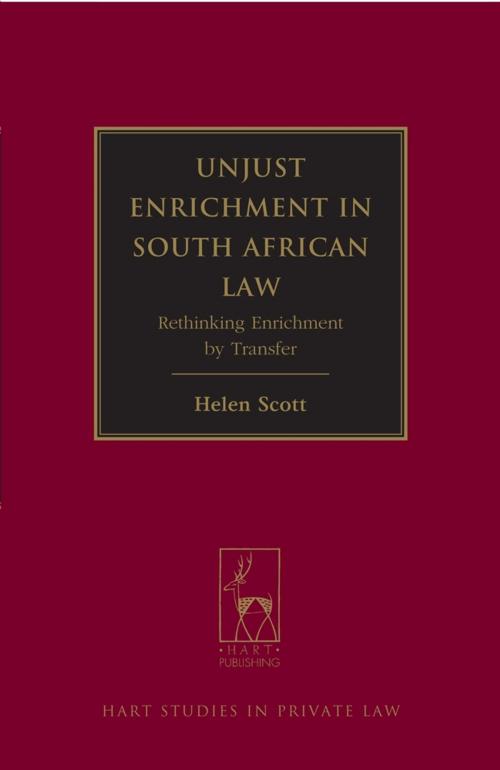Unjust Enrichment in South African Law
Rethinking Enrichment by Transfer
Nonfiction, Reference & Language, Law, Contracts, Civil Law| Author: | Professor Helen Scott | ISBN: | 9781782251392 |
| Publisher: | Bloomsbury Publishing | Publication: | July 18, 2014 |
| Imprint: | Hart Publishing | Language: | English |
| Author: | Professor Helen Scott |
| ISBN: | 9781782251392 |
| Publisher: | Bloomsbury Publishing |
| Publication: | July 18, 2014 |
| Imprint: | Hart Publishing |
| Language: | English |
Conventional thinking teaches that the absence of liability - in particular contractual invalidity - is itself the reason for the restitution of transfers in the South African law of unjustified enrichment. However, this book argues that while the absence of a relationship of indebtedness is a necessary condition for restitution in such cases, it is not a sufficient condition. The book takes as its focus those instances in which the invalidity thesis is strongest, namely, those traditionally classified as instances of the condictio indebiti, the claim to recover undue transfers. It seeks to demonstrate that in all such instances it is necessary for the plaintiff to show not only the absence of his liability to transfer but also a specific reason for restitution, such as mistake, compulsion or incapacity. Furthermore, this book explores the reasons for the rise of unjust factors in South African law, attributing this development in part to the influence of the Roman-Dutch restitutio in integrum, an extraordinary, equitable remedy that has historically operated independently of the established enrichment remedies of the civilian tradition, and which even now remains imperfectly integrated into the substantive law of enrichment. Finally, the book seeks to defend in principled terms the mixed approach to enrichment by transfer (an approach based both on unjust factors and on the absence of a legal ground) which appears to characterise modern South African law. It advocates the rationalisation of the causes of action comprised within the condictio indebiti, many of which are subject to additional historically-determined requirements, in light of this mixed analysis.
Conventional thinking teaches that the absence of liability - in particular contractual invalidity - is itself the reason for the restitution of transfers in the South African law of unjustified enrichment. However, this book argues that while the absence of a relationship of indebtedness is a necessary condition for restitution in such cases, it is not a sufficient condition. The book takes as its focus those instances in which the invalidity thesis is strongest, namely, those traditionally classified as instances of the condictio indebiti, the claim to recover undue transfers. It seeks to demonstrate that in all such instances it is necessary for the plaintiff to show not only the absence of his liability to transfer but also a specific reason for restitution, such as mistake, compulsion or incapacity. Furthermore, this book explores the reasons for the rise of unjust factors in South African law, attributing this development in part to the influence of the Roman-Dutch restitutio in integrum, an extraordinary, equitable remedy that has historically operated independently of the established enrichment remedies of the civilian tradition, and which even now remains imperfectly integrated into the substantive law of enrichment. Finally, the book seeks to defend in principled terms the mixed approach to enrichment by transfer (an approach based both on unjust factors and on the absence of a legal ground) which appears to characterise modern South African law. It advocates the rationalisation of the causes of action comprised within the condictio indebiti, many of which are subject to additional historically-determined requirements, in light of this mixed analysis.















